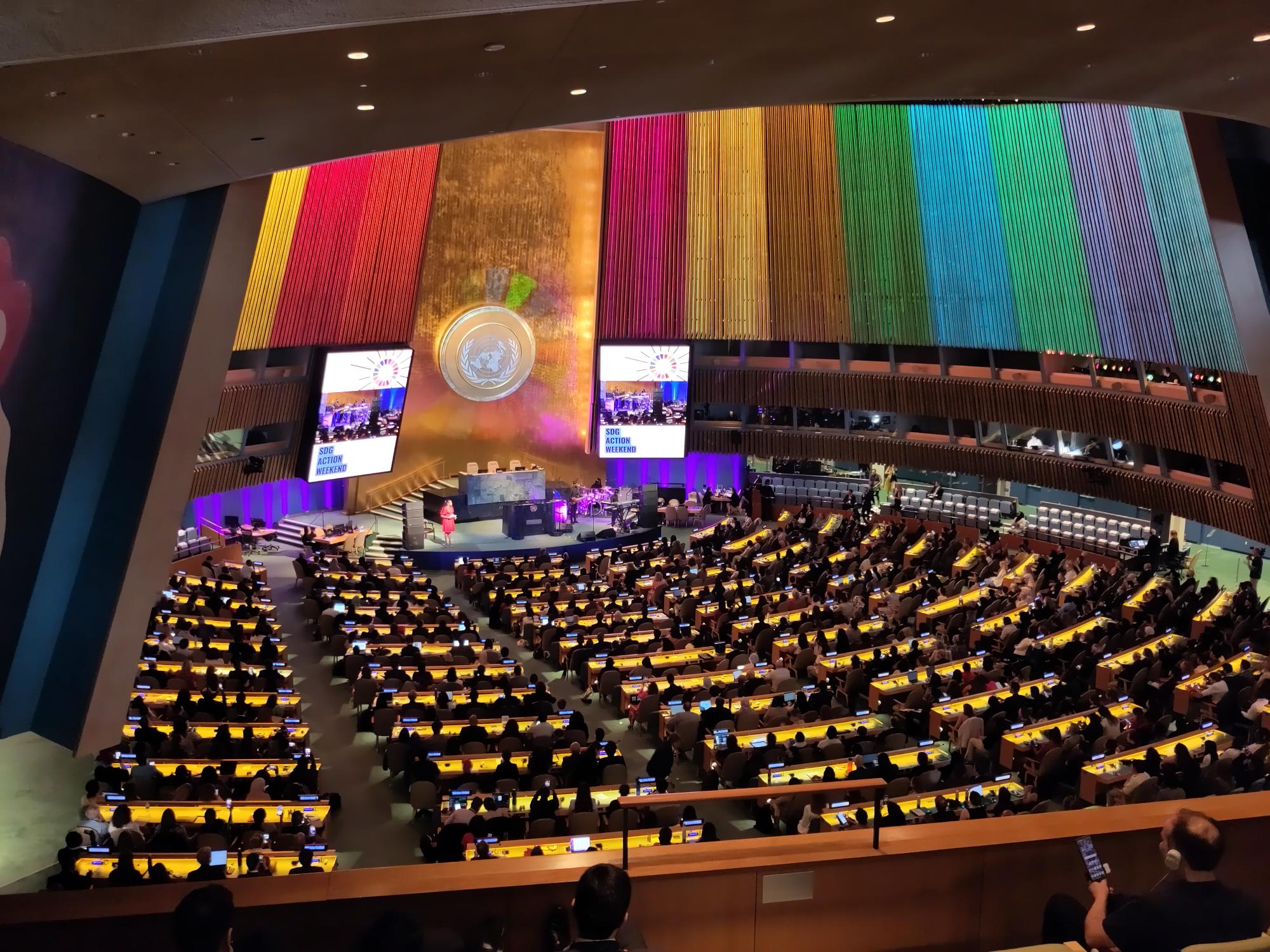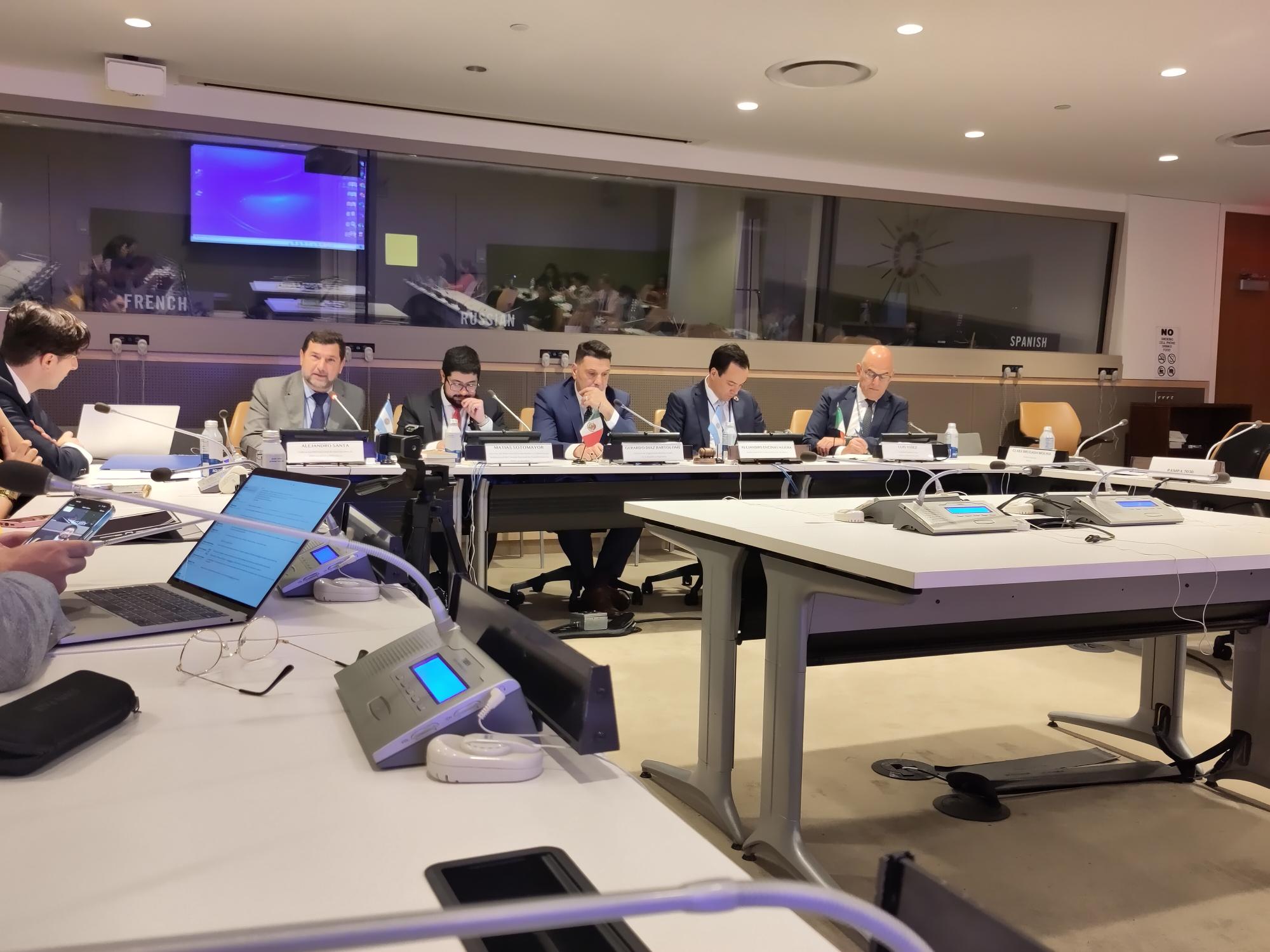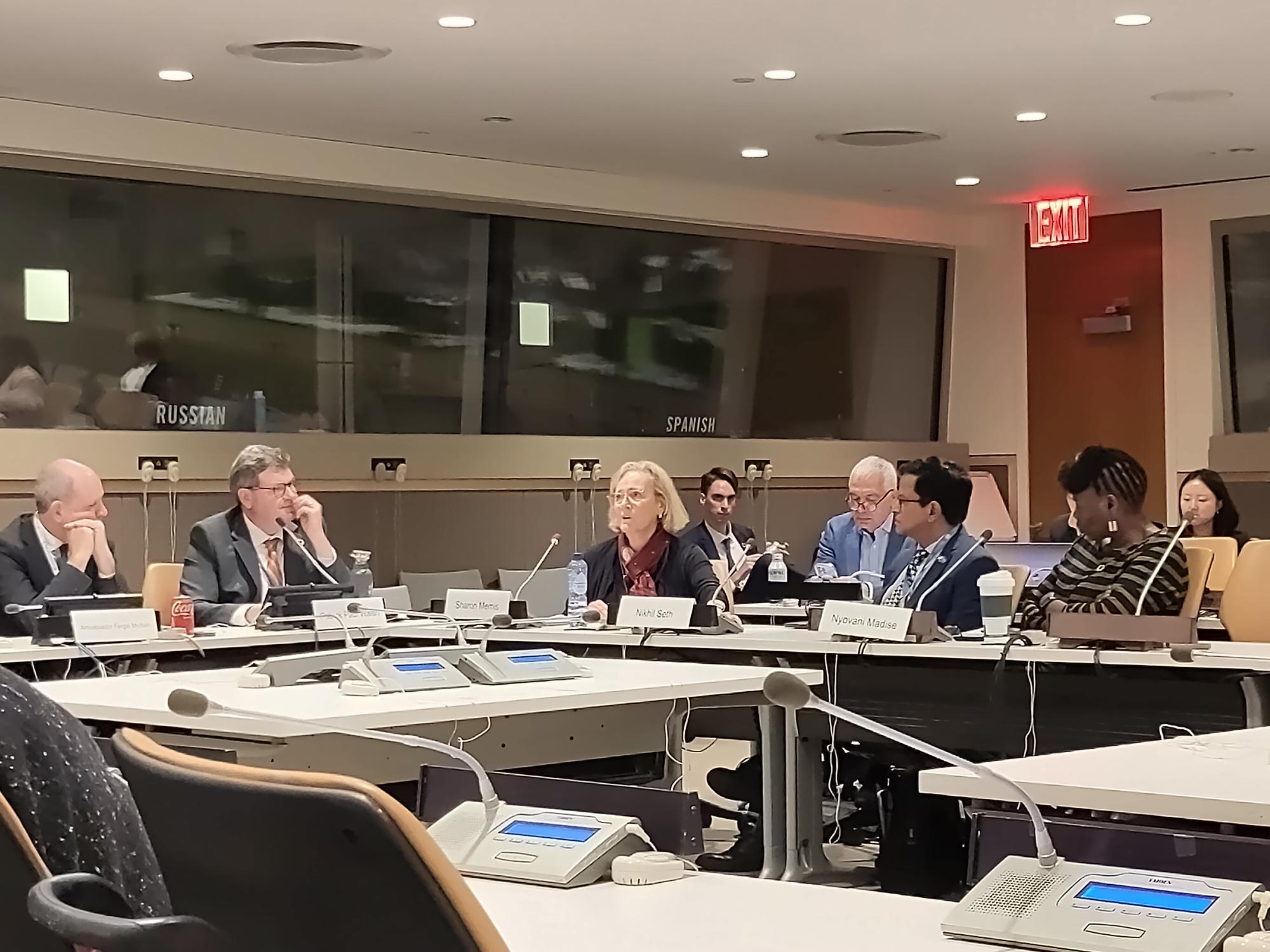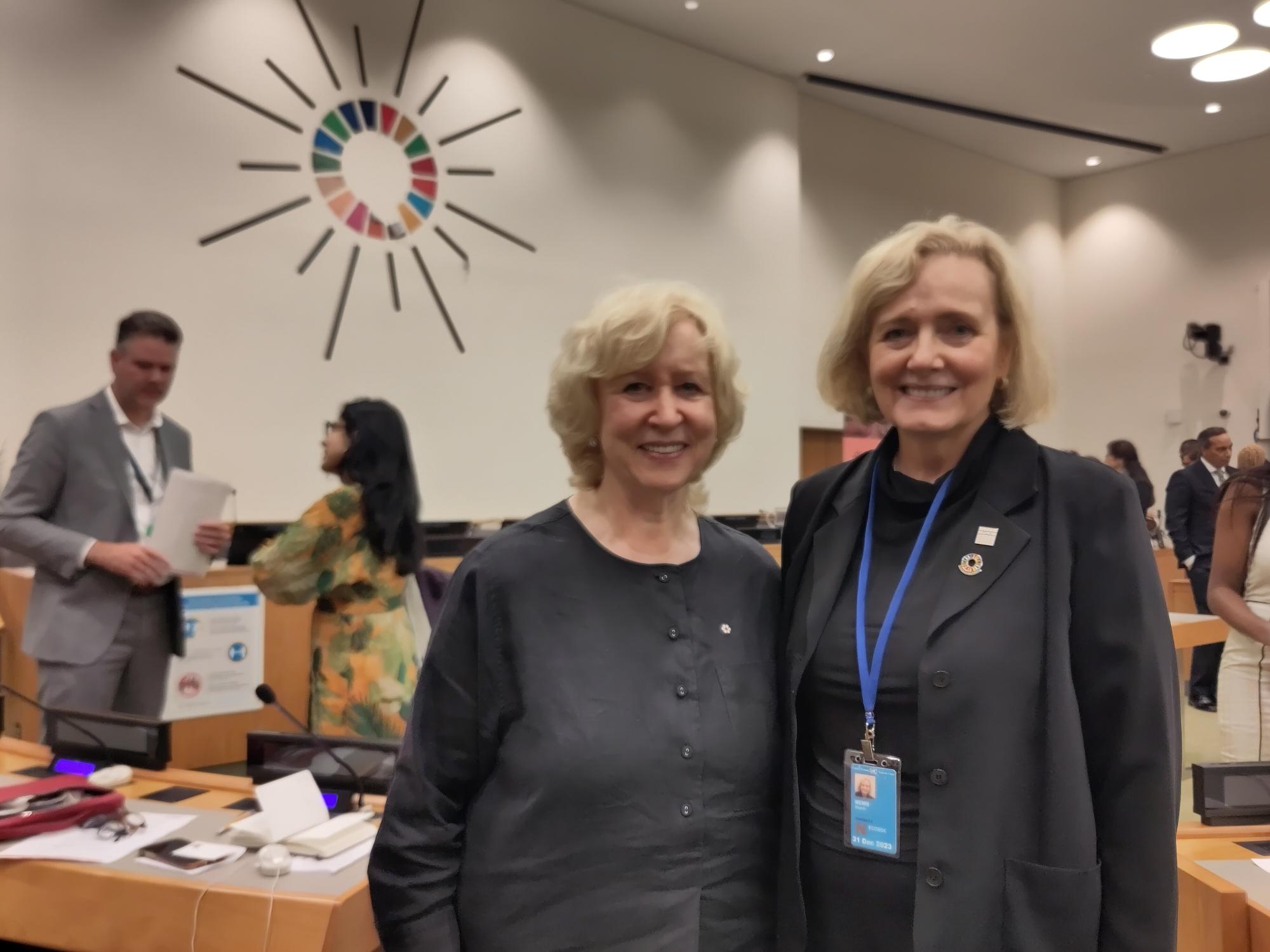Recognising the potential: IFLA at the SDG Action Weekend
19 September 2023
Libraries have a great story to tell of making a difference to development across the policy agenda. As our engagement at the SDG Action Weekend showed, this story is becoming better known at the United Nations among those working on sustainable development. Next step: new partnerships and impact.

The SDG Action Weekend took place on 16-17 September, just ahead of the SDG Summit on 18-19, at the United Nations in New York. Looking back on the inadequate progress made to date, and forward to what needs to be done, the need to motivate and mobilise for change was at the heart of the agenda.
IFLA was there, representing libraries and cultural institutions more broadly, with the goal of connecting with other stakeholders, and more broadly promoting an understanding of libraries as dynamic, innovative and necessary partners for development.
A call for collaboration
The SDGs offer an excellent framework for demonstrating libraries’ relevance, with a structure and language that allows us to build alliances that, we hope, can then be replicated at the regional, national and local levels.

We were involved in two side events which pursued this goal. The first, co-organised by IFLA, focused on the power of collaboration to deliver on the goals. Alongside senior officials and ministers from Argentina and Mexico, Alejandro Santa, Chair of IFLA’s Regional Council, talked about libraries’ unique reach, and how partnerships had made it possible to bring development through information to all parts of the country.
He stressed that even without explicit connections between the SDGs and libraries in many cases, delivery was happening anyway, libraries contribution and impact needed to be better reported.

The second, organised by the Sustainable Development Solutions Network, looked broadly at the role of information and information networks. IFLA Secretary General Sharon Memis spoke, urging other development stakeholders to update their perceptions of libraries.
In particular, she underlined how libraries had shown their own creativity in finding ways to meet communities needs in a changing world, and called on others to show the same creativity when finding ways to work with us.
Beyond these events, other key highlights included:
- A powerful call from Jeffrey Sachs, one of the most prominent voices on Sustainable Development, to integrate libraries and their unique contributions better into strategies
- Acknowledgement by former Canadian Prime Minister Kim Campbell of the role of libraries in building democratic reflexes into society
- Opportunities to connect with people and organisations leading on digital inclusion to talk about the role of libraries, including a short meeting with the Director General of the International Telecommunications Union Doreen Bogdan.
- Active engagement with partners in local government, as well as clear calls from the Lord Mayor of Dublin for a culture goal

Overall, it was clear that libraries generally got a warm welcome from a variety of stakeholders. In line with the findings from our assessment of Voluntary National Reviews, there seems to be growing awareness of what libraries can do.
The challenge is both broadening this recognition still further, and about how to turn passive support into active mobilisation. We’ll be continuing our engagement with friends and colleagues across the UN in order to make this happen.